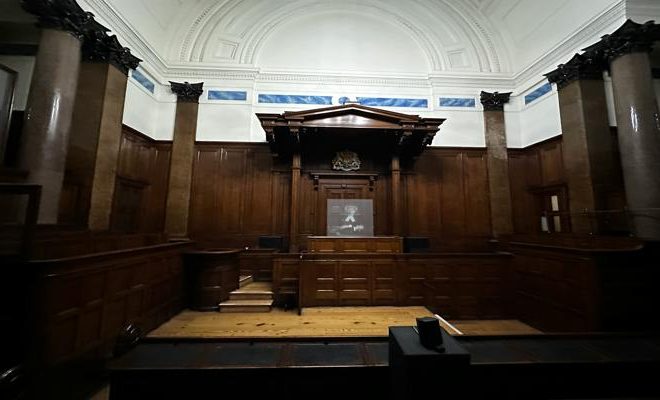
Understanding Civil Lawsuits: How a Civil Suit Attorney in Atlanta Can Protect Your Rights
Civil disputes are more common than many people realize. Conflicts between individuals, businesses, landlords and tenants, or even family members, may escalate to the point where legal action becomes necessary. When emotions, finances, or important rights are involved, navigating the legal system alone can feel overwhelming. In these moments, speaking with a civil suit attorney in Atlanta can help you understand your options and protect your interests.
Civil law covers many disputes that do not involve criminal charges. Instead of the government prosecuting someone for breaking the law, civil cases focus on resolving disagreements and determining compensation or obligations. This article explains how civil lawsuits work, why legal representation matters, and what to consider when seeking help—especially if you are new to the legal process.
What Is a Civil Lawsuit?
A civil lawsuit is a legal action filed by one party (known as the plaintiff) against another (the defendant) to resolve a dispute and seek a remedy. Remedies are often monetary damages, but they can also include court orders requiring a person or business to take or stop certain actions.
Common Types of Civil Cases
Civil disputes encompass a broad spectrum. Some of the most common include:
- Contract disputes: Breach of contracts for services, sales agreements, rental or lease agreements.
- Personal injury claims: Cases involving car accidents, slip-and-fall incidents, and other accidents where negligence caused harm.
- Property disputes: Boundary disagreements, landlord–tenant issues, or damage to real estate.
- Business litigation: Conflicts between business partners, vendors, or customers.
- Employment disputes: Issues involving wrongful termination, discrimination, or unpaid wages.
While each case type has unique features, they all revolve around the idea that one party believes another has caused financial loss or violated important legal rights.
The Civil Litigation Process in Simple Terms
Civil litigation may appear intimidating, but understanding the sequence of events helps reduce uncertainty.
Step 1: Filing the Complaint
The case begins when the plaintiff files a legal document called a complaint with the court. This document explains the dispute and what remedy the plaintiff is seeking.
Step 2: The Defendant Responds
The defendant typically files an answer. In this response, the defendant may agree with parts of the complaint, dispute it, or present legal defenses.
Step 3: Discovery
Both sides exchange information, documents, and evidence. This stage often involves:
- Written questions (interrogatories)
- Depositions (interviews under oath)
- Requests for documents or records
Discovery is essential because it helps both parties understand the strengths and weaknesses of the case.
Step 4: Settlement Negotiations or Mediation
Many civil cases do not go to trial. Instead, both parties may attempt to negotiate a resolution. Georgia courts often encourage mediation, where a neutral third party helps guide discussions.
Step 5: Trial (If Necessary)
If the parties cannot agree, the case proceeds to trial. The judge—or sometimes a jury—reviews the evidence and decides the outcome.
Why Legal Representation Matters
Many assume that because the civil court does not involve criminal penalties, representing themselves is a manageable option. In reality, civil litigation involves deadlines, extensive documentation, procedural rules, and strategic decisions. A missed filing or incomplete evidence submission can damage the case.
A civil suit attorney in Atlanta can:
- Interpret complex legal rules and ensure filings meet all requirements.
- Gather and organize relevant evidence to build a strong case.
- Negotiate with the opposing party to pursue a fair resolution.
- Represent you at trial if negotiations do not resolve the dispute.
Even if the case seems straightforward, small mistakes can have lasting financial consequences.
How to Choose the Right Civil Suit Attorney
Selecting the right lawyer involves more than finding someone familiar with civil law. You should look for an attorney experienced in cases similar to yours and knowledgeable about Georgia’s legal system.
Here are key qualities to consider:
Experience With Similar Cases
Different civil cases require different legal strategies. For example, an attorney who regularly handles contract disputes may approach the case differently from one who focuses on personal injury claims.
Communication Style
You should feel comfortable discussing personal or financial matters openly. A reasonable attorney will explain legal concepts clearly and ensure you understand every step.
Local Knowledge
Laws can vary by state and even by county. Working with someone familiar with Atlanta courts and judges offers an advantage.
When Should You Consult a Civil Suit Attorney?
Some disputes escalate quickly, while others evolve over time. Consider reaching out to legal counsel when:
- Communication between parties breaks down.
- Significant financial loss or physical harm occurs.
- You receive formal legal documents, such as a demand letter or summons.
Early legal advice helps you avoid missteps and preserve important rights. Many people begin their research online, and resources such as the Georgia Department of Law Consumer Protection Division (available through the Georgia.gov portal) provide general guidance on disputes involving contracts or fraud.
You can start by searching online or using legal directories to explore legal representation. Many firms provide initial consultations to discuss case details and possible strategies. If you are unsure how to begin, consider using resources that help you find a civil suit attorney in Atlanta—anchoring your search to professionals who understand local laws and court procedures.
Final Thoughts
Civil lawsuits can involve complicated procedures and a significant financial impact. Understanding how the civil court system works—and the role an attorney plays—can help reduce stress and uncertainty. Whether pursuing a claim or defending against one, working with a civil suit attorney in Atlanta ensures your rights are clearly represented and protected throughout the process.



